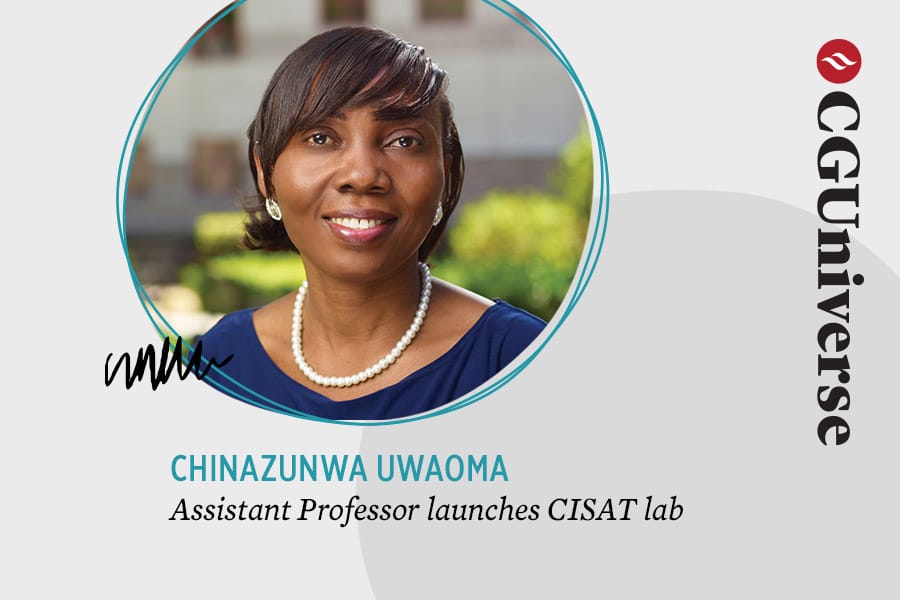Preparing for a Cyber-Secure Future at the Cybersectronics Lab

The digital age has created a world of constant connection through networks that most of us barely understand. Our lives now play out online through social media and data stored by banks, hospitals, government agencies, and a vast array of businesses.
The Internet of Things (IoT) describes the technologies that connect and exchange data through networks that make our fast-paced lives possible. To safeguard that data, and provide a space for students to innovate in the evolving field of cybersecurity, CGU Research Assistant Professor Chinazunwa Uwaoma established the Cybersectronics Lab.
“It has been quite an exciting journey from the conception, through the development and offering of IoT courses at CGU, to setting up a lab space that enables students to showcase their research and technical skills,” Uwaoma said. “My students are using their critical thinking in creating technological solutions to address real-world problems.”
The Cybersectronics Lab in room 210 of the Center for Information Systems & Technology (CISAT) building allows students to research and develop IoT projects for personal, business, and industrial applications. It provides an environment for students to apply their knowledge and skills and implement their training in ethics to safeguard personal and organizational assets against increasing cybersecurity threats.
“In the Cybersectronics Lab, we do not just pitch project ideas, we follow through with the implementation of the projects to create real-life experiences,” Uwaoma said. “We also incorporate security elements in the IoT builds to protect the devices given the evolving cyber threat landscape in the digital estate, hence the name of the lab: Cyber, Security, and Electronics.”
The lab’s research has centered on digital technologies that support and improve healthcare systems but extends to other sectors such as supply chain, transportation, education, hospitality, agriculture, and energy. Current research focuses on enhancing secure communications in mobile devices and IoT systems used in remote patient monitoring and emergency care delivery.
Other projects include improving mobile device security in healthcare systems, implementing Zero Trust (a security framework that requires all users to be authenticated, authorized, and continuously validated before being granted access to data) in mobile and IoT architectures, and examining compliance with security best practices in the adoption of mobile and IoT solutions for healthcare services and delivery.
Below, you’ll find clips of student research, including an air quality monitoring system, soil moisture sensing system, driver verification system, and various file transfer systems.